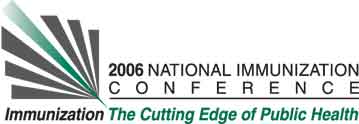John M. Fontanesi, Partnership of Immunization Providers, Community Pediatrics, UC San Diego, 9500 Gilman Drive, MC 0927, La Jolla, CA, USA and Linda Hill, Family and Preventive Medicine, UCSD, 9500 Gilman Dr, MS 0811, La Jolla, CA, USA.
Learning Objectives for this Presentation:
By the end of the presentation participants will be able to:
1. Describe the frequency and consequence of financial discussion during the clinical encounter
2. Describe the impact of such decision on subsequent decision to vaccinate
3. Identify potential solutions
Background:
Disparities in health care are a major public health concern. While health beliefs, health literacy, cultural competency and access to care have been associated with disparities in health care, not yet documented is the direct effect discussing costs of services has on the decisions to vaccinate. This presentation will review data from recorded clinical encounters of high risk young adults eligible for influenza vaccination and/or pneumoccocal vaccination and compare those with and without a third party payor.
Objectives:
To document the impact of cost of service on decisions to be vaccinated.
Methods:
Detailed workflow of 49 clinical encounters, including the recordings of patient-provider discussion, were obtained, coded and analyzed. Subjects were high risk young adults eligible for influenza and pneumococcal vaccinations
Results:
Two major consequences occurred when cost of service was discussed during the clinical encounter. The first is that both physician and patient generally opted out of vaccinations services at the time of the encounter. The second is that discussion of cost of service generally came at the expense of reviewing preventive health history and less discussion of preventive services needs and recommendations.
Conclusions:
Cost of care affects not only access to care but affects the care provided during the clinical encounter. The uninsured are differentially affected but discussion about costs affects all categories of patients and interferes with optimal discussion of care options. The utility of universal vaccine coverage, or at least, an Vaccine For Adults program modeled after the Vaccines For Children program is worth discussing.
See more of Posters
See more of The 40th National Immunization Conference (NIC)

